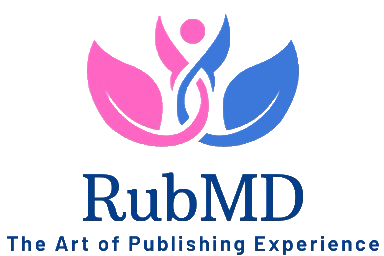Breast cancer casts a long shadow, impacting hundreds of thousands of individuals in the United States every year, according to the CDC. This disease doesn’t discriminate, affecting both women and men. While advancements in treatment offer a beacon of hope, the sobering reality is that breast cancer remains a leading cause of cancer-related deaths. Each year, it tragically claims the lives of roughly 42,000 women and 500 men in the U.S. alone.
Faced with these sobering statistics, it becomes even more crucial for individuals to be well-prepared and informed about breast cancer and its management. Knowledge empowers, and in this critical fight, information is your weapon. In this article, we’ll equip you with essential knowledge and guidance as you embark on your journey against breast cancer.
Demystifying Breast Cancer: Knowledge Is Power
Breast cancer can be a complex topic, but understanding it empowers you to take charge of your health. It starts with abnormal cell growth in breast tissue, and different forms exist, like ductal carcinoma in situ (DCIS) and invasive carcinomas.
Understanding various types of breast cancer and your individual risk factors is essential for early detection. This typically involves mammograms, capable of detecting cancer before lumps emerge, and regular self-exams to spot any changes in breast appearance or texture.
The National Breast Cancer Foundation advocates for monthly self-exams. They suggest premenopausal women perform them after their menstrual cycle, and postmenopausal women choose a specific date each month. Detecting breast cancer early is paramount in improving treatment outcomes and prognosis. If you notice any changes like nipple discharge, skin texture changes, tenderness, or new lumps, talk to your doctor right away.
Recent advancements like genetic testing can even identify inherited risk factors. This allows for personalized prevention and treatment plans, putting you more in control of your health journey.
Facing the Emotional Rollercoaster
A breast cancer diagnosis can bring a wave of emotions – fear, uncertainty, maybe even anger. It’s completely normal to feel overwhelmed. The key is acknowledging those feelings and seeking support. Engage in conversations with close ones, seek solace in support groups, or seek guidance from a therapist.
Cultivating resilience and maintaining a positive outlook can significantly impact your journey. Practices like mindfulness, meditation, or seeking counseling can all help manage stress and keep your emotional well-being a priority throughout treatment.
Building Your Healthcare Team
Building a strong healthcare team is crucial. This team, like a superhero squad, might include oncologists (cancer doctors), surgeons, radiologists, nurses, genetic counselors, and support staff. Prioritize providers specializing in breast cancer treatment and who value open communication. This ensures personalized care and empowers you to make informed decisions.
Think beyond traditional medicine, too. Complementary and alternative medicine (CAM) practitioners like nutritionists, acupuncturists, and physical therapists can offer holistic support for your well-being.
Medication Management
Medication management goes beyond just swallowing pills during breast cancer treatment. A critical element, especially with chemotherapy drugs, is their proper administration. These medications are usually administered either through an IV (intravenous) or orally (by mouth). Adhering to the recommended dosage and schedule is essential to ensure maximum effectiveness while minimizing the risk of side effects.
Unfortunately, instances of medical device malfunctions can occur, highlighting the importance of safety. A case like Brad Songy’s, a Texas woman undergoing breast cancer treatment, serves as a stark reminder. As reported by Drugwatch, a piece of her Bard PowerPort catheter (used for medication delivery) broke off and lodged in her heart.
This harrowing experience, detailed in the Bard Power Port lawsuit, underscores the significance of:
- Choosing safe medical devices: Thorough research and vigilance are crucial when selecting devices used in your treatment plan. Consider potential risks associated with them.
- Open communication with healthcare providers: Discussing any concerns about your treatment medications or devices is essential.
Medical device malfunctions can have devastating consequences. In cases like Songy’s, lawsuits highlight the manufacturer’s alleged failure to adequately warn patients and healthcare providers about potential risks. The purpose of these legal proceedings is to ensure that manufacturers are held responsible for the safety of their products.
If you face similar situations, seeking legal guidance can be empowering, as stated by TorHoerman Law. A knowledgeable lawyer can help you navigate complex product liability laws and advocate for your rights. They can also pursue compensation for damages caused by a malfunctioning device.
Taking Charge of Your Well-Being: Beyond Treatment
Treatment is a vital step, but you hold the power to feel your best during your breast cancer journey. Taking charge of your health through healthy habits can significantly boost your well-being. Focus on nourishing your body with a balanced diet filled with fruits, vegetables, whole grains, and lean proteins while steering clear of processed foods and sugary drinks.
Stay active with regular exercise like walking to boost strength, diminish fatigue, and uplift your spirits. Practice stress-relief methods such as meditation or deep breathing to foster relaxation and tranquility. Ensure ample rest and quality sleep to support your body’s recovery and renewal. Seek companionship from family and friends, and explore support groups to nurture connections and emotional resilience.
Beyond Medical Care: Facing Financial Challenges
Breast cancer isn’t just a physical fight – it can be a financial one, too. Treatment costs can vary widely, but according to Patient Power, the average patient faces thousands of dollars in annual expenses. Additionally, the stage of your cancer can significantly impact the cost, with later stages typically being more expensive.
Here’s a breakdown of average first-year treatment costs by stage (source: Patient Power):
- Stage 0: $60,637
- Stage 1 & 2: $82,121
- Stage 3: $129,387
- Stage 4: $134,682
These figures highlight the importance of financial planning and understanding the potential costs associated with breast cancer treatment.
Frequently Asked Questions
What stages does breast cancer progress through, and how do they impact treatment?
Breast cancer is categorized into stages ranging from 0 (non-invasive) to 4 (advanced). The stage impacts treatment decisions. Early stages (0-2) often involve surgery and may include radiation. Later stages (3-4) typically involve a combination of surgery, radiation, and chemotherapy, or other medications.
What resources are available to help me navigate the financial burden of treatment?
Financial assistance programs and patient assistance funds can help with treatment costs. Some hospitals offer social workers who can guide you towards these resources. You can also explore payment options with your doctor’s office.
How can I adjust my lifestyle to promote well-being during and after treatment?
During and after breast cancer treatment, prioritize a nutritious diet abundant in vegetables, fruits, and whole grains. Regular exercise like walking or swimming can boost strength and mood. Managing stress through relaxation techniques like meditation or deep breathing can also improve your emotional well-being.
Your Fight, Your Victory
The journey against breast cancer requires more than just facing it head-on. It’s about understanding your options, building a strong support system, and taking an active role in your well-being. Knowledge is your weapon, and with it, you can navigate treatment and recovery with strength and optimism.
Remember, you’re not in this alone. By seeking the right information and support, you can overcome any hurdle. Together, we can continue to improve breast cancer care and create a brighter future for everyone impacted by this disease.



